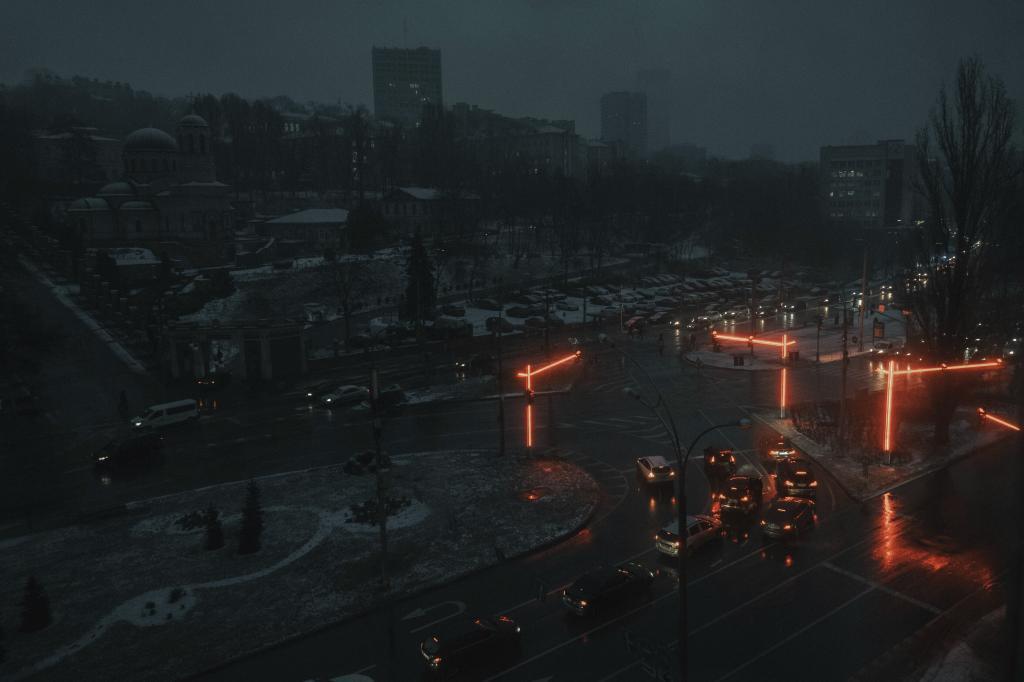For the first time in almost four years of war, Ukraine intends to counterattack the cold war that the Kremlin has been waging for the fourth consecutive winter. The initial idea came from the now fallen from grace (and almost forgotten) General Sergei Surovikin in the fall of 2022, the first year of the war.
What is the purpose of this strategy, already used by the Russians in their bombings in Syria? Surovikin's plan aimed to turn electricity, heat, and transportation into "centers of gravity" to force strategic costs, that is, to break civilian life and morale: hitting the electrical and heating grid in the middle of the cold season to make cities uninhabitable and erode social support for the war.
Additionally, they aimed to pressure Kiev to negotiate from a position of weakness, divert Ukrainian anti-aircraft defenses towards major cities (thus leaving the front unguarded), and create migratory pressure on Europe by generating flows of displaced persons, especially the elderly, women, and children.
But with imagination, effort, and a resilience not believed by their enemy, Ukraine has withstood each of the three previous winters, sometimes enduring cuts of several days and having to adapt to heating by the hour that progressed through neighborhoods. Moreover, the distance from Moscow to Kiev is the same as from Kiev to Moscow.
This winter, for the first time since the invasion began, Ukraine has decided to retaliate against Moscow, involving the Russian people in the decisions of their leaders. In the past week, Kiev has already successfully attacked two thermal power plants in Belgorod and Bryansk, two border regions with Ukraine, and another in the Russian-occupied Zaporizhia, in "mirror" attacks to those carried out by the Kremlin against thermal plants in Sumy, Kharkiv, and Donetsk.
"The Russians do not understand the cost of all these blackouts, of all the hardships that the Ukrainian people experience and endure during this war. And this is not even a matter of morality, of which they lack, but of physical perception. Ukraine does not kill civilians. But they must understand the price this entails," said President Volodymyr Zelensky last Monday. The mentality behind this measure, reflected in a phrase repeated these days by many in Kiev, is "for every Ukrainian who feels cold, a Russian will feel cold."
Why can Ukraine do this now? Kiev has developed in record time an armaments industry that has allowed it to launch its own drones and missiles against Russia, in addition to the capabilities provided by its allies, such as the Himars launchers and Storm Shadow missiles, with a range of 250 kilometers. Just yesterday, a Ukrainian long-range drone traveled 2,100 kilometers before crashing into fuel depots. This fall, Ukraine has already presented two models of its own missiles, the Flamingo, whose range and capabilities are yet to be seen, and an improved version of its Neptune.
Both Ukraine and Russia use a centralized public heating system inherited from the former USSR. That is, if a projectile successfully hits the cogeneration thermal power plant, responsible for producing electricity and heat from gas, diesel, or coal, it can leave an entire city at the mercy of the cold winter and in complete darkness. Regardless of who does it, it is a civilian target and constitutes a war crime.
In the same vein is Kiev's request to Washington to sell (through its European allies) the powerful Tomahawk missiles, capable of reaching over 2,000 kilometers away. Trump said last Monday that he had "made a decision" regarding the delivery of these weapons but needed to know, before sending them, what Kiev's objectives are for these missiles. Sources close to the White House have explained that the president's intention is indeed to deliver them, but in very few numbers and as a leverage to pressure Vladimir Putin to engage in sincere negotiations with Zelensky. If this negotiation does not take place due to the Kremlin's refusal, then the deliveries would be more substantial.
The Kremlin stated yesterday that it expects "clearer statements" regarding the possible delivery of these missiles. "We understand that we need to wait, perhaps, for clearer statements, if there are any," said the spokesperson for the Russian Presidency, Dmitry Peskov, who added that Russian President Vladimir Putin had already indicated a few days ago that the possible supply of Tomahawks to Ukraine would represent an escalation in relations between Moscow and Washington.
"Ukraine counterattacks, targeting military objectives and energy facilities that sell their energy resources. Russia sells its energy resources and then uses that money exclusively for war. This is why Ukraine is taking absolutely fair measures," commented Zelensky. "They are killing us. We cannot allow them to feel comfortable. And when they no longer feel comfortable, they will start questioning their leaders," concluded the President of Ukraine.
